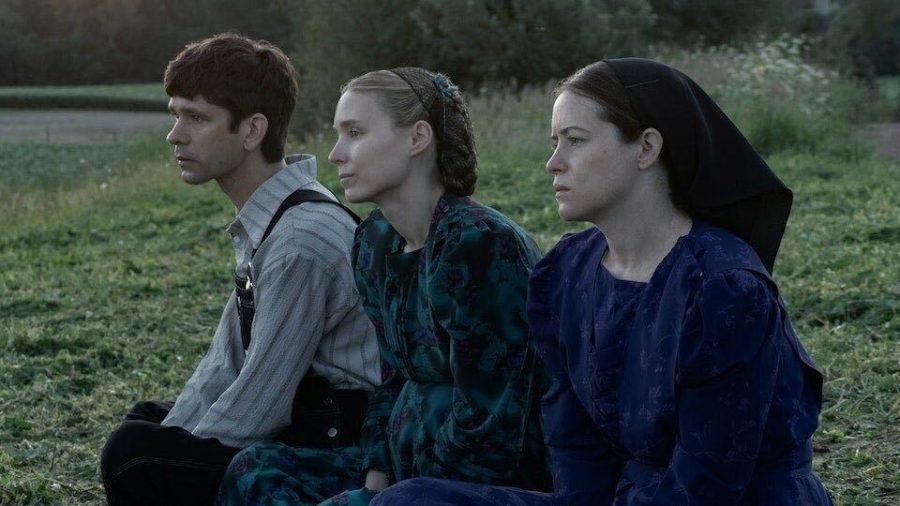‘Women Talking’ achieves striking social commentary with modern-day relevance
December 22, 2022
CW: This film and review discuss sexual violence.
Writer and director Sarah Polley’s newest film “Women Talking,” adapted from a novel of the same name, tells the story of a conservative religious colony where a group of women grapple with their faith and hold a series of meetings to decide whether to stay or leave in the aftermath of a string of sexual assaults. The film highlights the importance of women finding support in their community.
The women of the colony have three options: do nothing, stay and fight or leave. While discussions dominate the film, “Women Talking” still manages to stay engaging and exhibits near-perfect “show don’t tell” technique. The film shows an accurate representation of the difficulty in choosing between religion and safety. Each character offers a unique perspective and provides personal support to their argument as religious women.
One of the film’s few flaws depicted a scene during the movie’s climax. Salome (Claire Foy) returns to the barn where she finds August (Ben Whishaw), and the two have an exchange that disrupts the flow of the film. Fortunately, no other pacing issues arise throughout the rest of the movie.
The religious group’s name never gets revealed, and the year in which the film takes place remains ambiguous until a census truck arrives in their community. These choices may result in audiences isolating the events of the film, forgetting that these issues still occur today. Through this, the film reflects on women’s experiences of growing up in a patriarchal society that enables rape culture.
One adaptational change from the book to the film was Polley’s choice to have Autje (Kate Hallett) as the narrator talking to Ona’s (Rooney Mara) unborn child instead of the narration coming from August’s minutes, straying away from the novel’s format. In one of the meeting scenes where the women make pro and con lists, August interjects and gives his opinion, but the women immediately silence him and remind him that his job only entails taking minutes. This change in narrator removes the feeling that a male figure oversaw the film and demonstrates the shift toward women taking power and controlling their own narrative.
One of the most effective scenes in the film showed August’s interaction with one of the young girls in the colony. His pleasantness toward her seems strangely off-putting, especially given the subject matter of the film. Audiences can’t help but remain speculative about his character, hoping that he doesn’t have the same intentions as other men in the colony.
Overall, the excellent cast, brilliant performances and rich script make “Women Talking” a must-see this year. Audiences should keep their eyes peeled for nominations this awards season.
4.5 pros and cons lists out of 5












